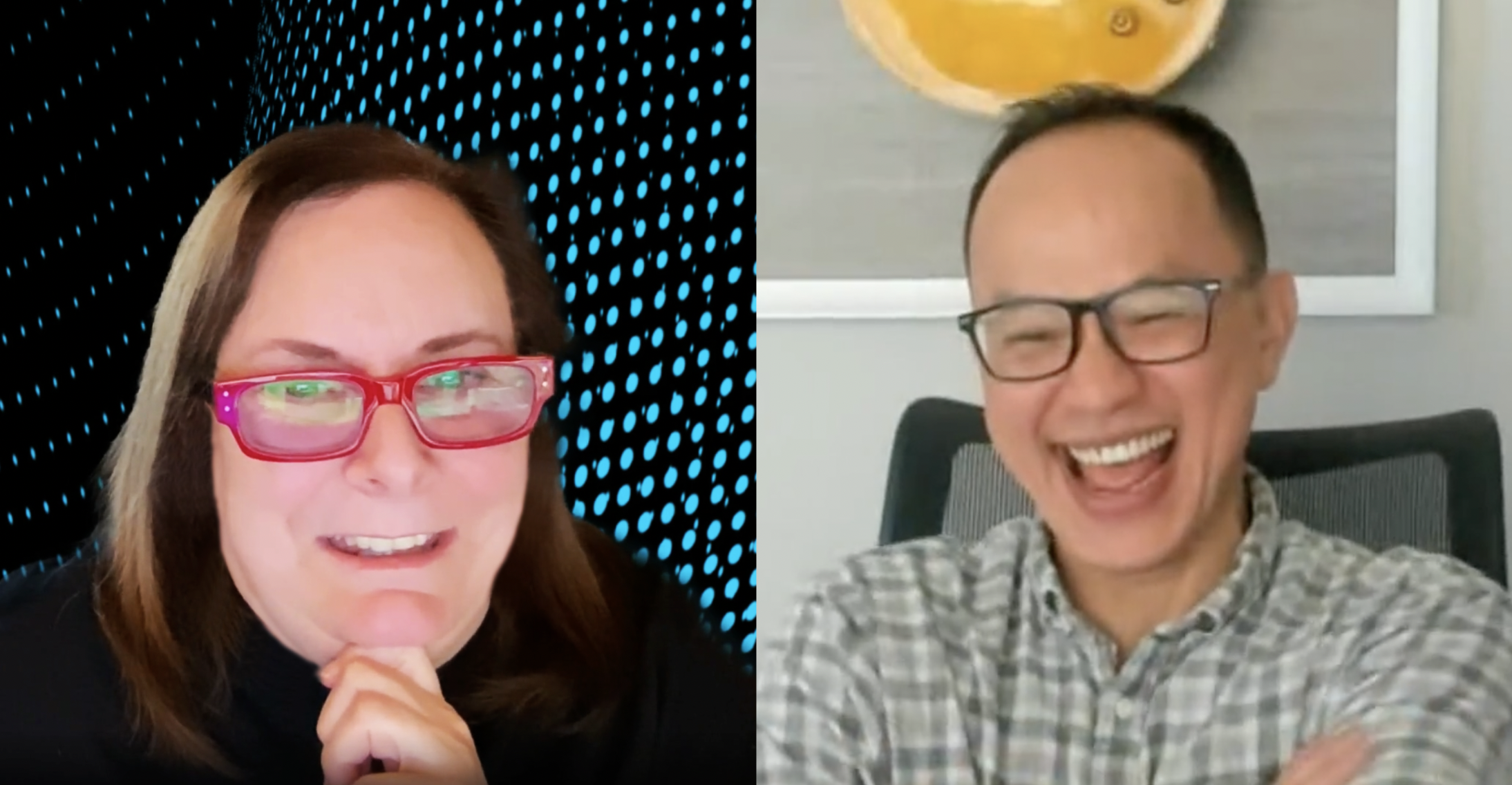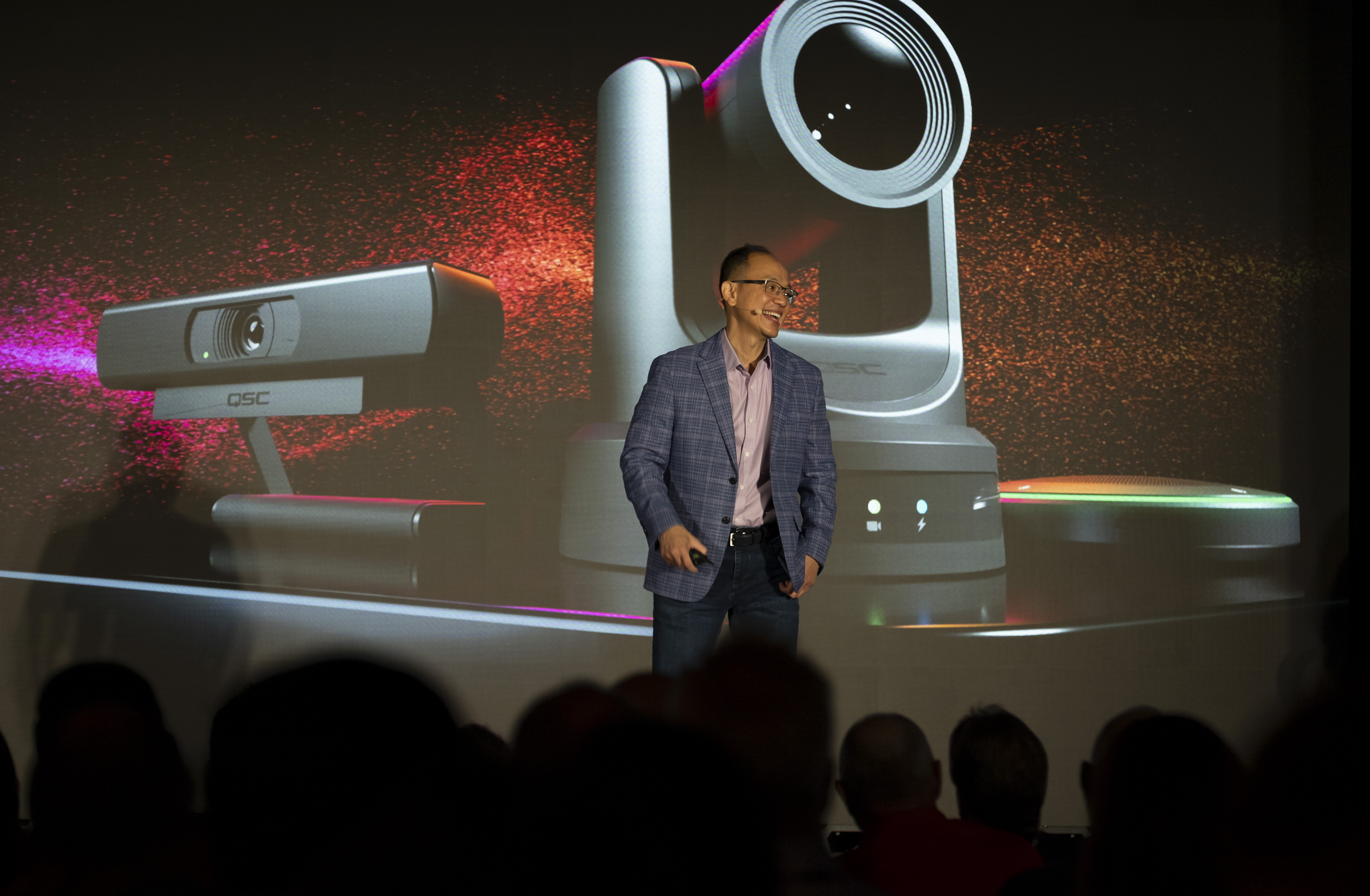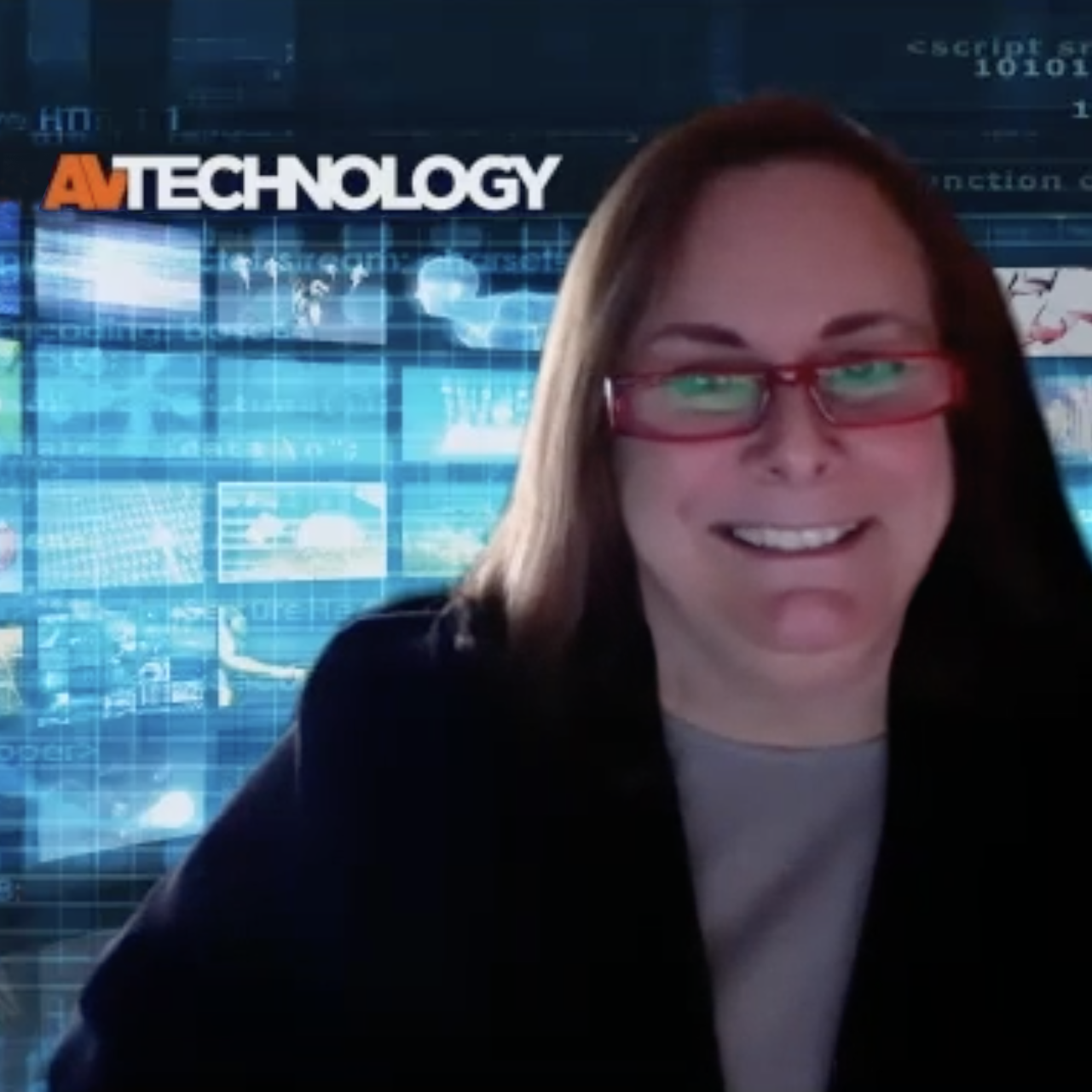Cindy Davis: First of all, Joe, congratulations on an incredible run. You've just announced your retirement after leading QSC for 21 years. What led to this decision, and why now?
Joe Pham: Thank you, Cindy. It's been an extraordinary journey that I'm immensely proud of. After over two decades at QSC, the timing felt right both professionally and personally. QSC is in a very strong place, especially following the close of our recent acquisition by Acuity, and I have complete confidence in the leadership team we've built. This decision wasn’t made lightly, but I believe it is the right time to pass the torch to the next generation of leaders who will guide QSC forward.
I'm thrilled to announce that Jatan Shah will be leading the organization as President of QSC. I couldn't imagine a better leader for QSC's future. Jatan has been instrumental in our success for years, and I've had the privilege of witnessing firsthand his extraordinary talent, his impact, and his care for our organization.
On a personal level, I'm really looking forward to spending more time with my family. It’s a really big year for us, with each member of the family celebrating an exciting life milestone. These are precious moments I don’t want to miss. It feels somewhat surreal to be stepping away, as I've been working continuously since I was seven years old, starting as a paper boy. There will certainly be an adjustment period, but I'm truly excited about QSC's bright future and embarking on this next chapter of life with my family.
Davis: The AV industry has transformed dramatically during your tenure. What are some of the biggest changes in the industry that you've witnessed over your career?
Pham: It's true—the evolution has been remarkable. When I started out, AV was very hardware-centric and somewhat siloed. We dealt with discrete pieces of equipment for sound, video, and control, all doing their own jobs. Over the years, we've seen a convergence of AV and IT that completely changed the game. Everything moved from analog to digital and then from standalone systems to networked, software-driven platforms. Today, it's not about individual boxes anymore; it's about integrated experiences. We have gone from simple projectors and mixers to complex AV ecosystems that can be monitored, managed, and even updated remotely in the cloud. One of the biggest shifts I've seen is this platform approach—for example, our Q-SYS platform was built as a software-first, networked ecosystem rather than just another piece of hardware. That was a bold move when we initiated it, but it anticipated where the industry was heading. And, of course, the focus now is on user experience and outcomes: how AV technology can create immersive, collaborative environments rather than just deliver audio or video signals. The industry's mindset has broadened; we're thinking in terms of solutions and experiences that bring real value. Also, the pace of innovation has accelerated—new features and capabilities roll out via software updates faster than we ever imagined in the old days. In short, AV has gone from a niche technical field to a truly integrated part of the IT and business strategy for many organizations. It's been exciting to be part of that transformation.

Davis: As someone who's been a key player through this transformation, where do you see the AV industry heading next? What future trends should we be watching?
Pham: I'm incredibly optimistic about where the industry is headed. In the near term, AI and machine learning are going to be game-changers—and we'll talk more about AI in a minute. Beyond AI, we'll continue to see the shift toward cloud-based and hybrid solutions. The pandemic accelerated trends like remote collaboration and virtual/hybrid meeting spaces, and those are here to stay. I think we'll refine those experiences to be even more seamless and engaging. Another big trend is the idea of data—AV systems are generating a wealth of data now. In fact, I often say our industry has an immense amount of data in our AV systems that we haven't fully tapped into, and that data can be extremely valuable in enhancing human connection and improving outcomes. So, I see a future where we harness analytics and insights from AV data to drive better decision-making and more personalized experiences. Also, expect even tighter integration of AV with other building technologies—from lighting to environmental controls—essentially creating smart, responsive spaces. The lines between AV, IT, and even building management are blurring. Another trend I'm excited about is the continued rise of platform ecosystems and open APIs. This will allow developers and partners to build on top of AV platforms like Q-SYS to add new capabilities, which fosters innovation beyond what any single company could do alone. And, of course, the industry will keep focusing on making technology more intuitive for end-users—perhaps through voice control, AR/VR, or other emerging interfaces. In a nutshell, the future of AV will be about intelligence, integration, and experience. We're heading into an era where AV isn't just supporting the experience—it is the experience, and it's increasingly intelligent and adaptive.
Davis: What challenges do you see ahead for integrators?
Pham: Integrators are facing a fascinating time of both opportunity and challenge. The convergence of AV with AI is creating a landscape that demands new skills and approaches. Perhaps the biggest challenge is keeping pace with the rapid evolution of technology while maintaining profitability. The days when integrators could focus solely on hardware installation are behind us - today's successful integrators need to be consultants, software experts, and business advisors all at once.
The integrators who will thrive are those who view themselves as experience architects rather than just equipment installers. They should focus on the outcomes and experiences they are creating rather than just the technology they are implementing. They'll need to be comfortable with data, analytics, and software-driven systems while never losing sight of the human connection that's at the heart of what we do. Despite the challenges, I'm incredibly optimistic about the future for integrators.
Davis: Speaking of big changes, one of the recent milestones for QSC is the acquisition by Acuity. In the press release, you noted that "bringing QSC together with Acuity underscores the critical role AV technology plays in live, hybrid, and virtual experiences." How do you see QSC and the Q-SYS platform fitting into the AV industry post-acquisition? What will QSC's role be within Acuity, and what does it mean for your customers and the industry?
Pham: I'm glad you brought that up. This is something I'm truly excited about for QSC's future. The acquisition by Acuity is a strong endorsement of how important AV has become beyond its traditional borders. Acuity is known for technology for lighting and building management—essentially making buildings and spaces smarter—and they saw QSC and our Q-SYS platform as a key piece of that puzzle. As a part of the Acuity Intelligent Spaces team, QSC helps drive a joint vision of making spaces smarter, safer, and greener through technology that leverages data interoperability while adding the element of experience to make that human connection. Concretely, that means our Q-SYS platform can integrate more deeply with building systems like lighting, HVAC, and BMS systems, in addition to doing what it already does with audio, video, and control. For the AV industry, I think it highlights that AV isn't an isolated discipline anymore—it's central to the broader discussion of smart buildings and experiential spaces. QSC's role will continue to be an innovator in AV, but now we have the backing and resources of a larger industrial technology company to accelerate growth. I firmly believe QSC's DNA will continue to thrive within Acuity. In short, QSC and Q-SYS will remain a driving force in AV, now amplified by the reach into intelligent spaces. It's an expansion of scope that can really benefit the AV industry by elevating our technology's importance in the bigger picture.
[Jatan Shah, QSC President Discusses $1.2 Billion Acquisition of QSC by Acuity]
Davis: At InfoComm 2024, you gave the keynote address titled "Everything Has Changed," which focused on AI and the AV industry's future. AI is on everyone's mind. What are your thoughts on artificial intelligence and its impact on AV? How do you envision AI changing the way we design or use AV solutions?
At our core, pro AV is about enabling human connection and experience—whether it's in a meeting, a concert, a classroom, or a digital signage context.
—Joe Pham
Pham: AI is enormously exciting for me—it's one of the reasons I titled that keynote "Everything Has Changed" because I truly believe we're at an inflection point. In my keynote (view keynote here) I took a bit of a playful look at how technology has evolved and put AI in the context of the major technological revolutions in human history. The crux is that AI has the potential to touch virtually every aspect of our lives, and the AV world is no exception. In fact, I'd argue that the AV industry is uniquely positioned to leverage AI in meaningful ways. Why? Because at our core, pro AV is about enabling human connection and experience—whether it's in a meeting, a concert, a classroom, or a digital signage context. We generate and use audio and visual data constantly, and AI thrives on data. As I mentioned earlier, our systems produce a wealth of information. If we architect our solutions right—for example, moving to cloud-first platforms so all that data can be aggregated—we can apply AI to really improve outcomes. Let me give you a few examples we're already seeing: AI-driven audio processing can do things like advanced noise cancellation and even isolate or enhance specific voices in a crowded room in ways traditional DSP couldn't. AI in video and control systems means cameras and devices that can automatically adjust settings based on what's happening. Say, a camera that detects a presenter has moved to one side of the stage and automatically reframes, or a system that notices the ambient light in a room has changed and signals the blinds to lower. We're also looking at predictive maintenance: by using machine learning on the data from AV equipment, an AI could predict that a projector lamp or an amplifier is likely to fail soon and alert the technicians before it goes out, preventing downtime. These are powerful improvements. Perhaps even more exciting is that AI might help us derive insights from how people use spaces and systems, leading to better design of experiences. Now, I always temper this with the point that AI in AV should be human-centric—it's not about tech for tech's sake but about enhancing how people communicate, learn, and enjoy content. One thing I emphasized in the keynote is that AV professionals shouldn't be afraid of AI; we should embrace it and help shape it. The AV industry has sometimes been a little behind the IT curve, but this is our chance to be at the forefront. We have creativity and a deep understanding of human experience, so if we combine that with AI's capabilities, the possibilities are endless. Honestly, the only limitation is our imagination at this point. I see AI as a tool that will empower AV to create more personalized, adaptive experiences—and perhaps even new types of experiences we haven't thought of yet. It's going to change a lot about how we design systems and how end users interact with technology, and I find that incredibly energizing.
Davis: Joe, as you prepare to step away from the day-to-day, what message would you like to share with the AV community?
Pham: I have so much I'd like to say, but I'll keep it to what matters most to me. First, thank you to our partners, customers, industry colleagues, and, of course, the amazing team at QSC. The AV community is truly special. It's hard to leave a role I've loved, but I'm filled with gratitude for the relationships and the accomplishments we've achieved together. I often say that QSC itself is the achievement I'm most proud of, and that's really because of the people– the passionate, innovative individuals in our company and the wider industry who make magic happen every day. I'm humbled and grateful to have played a part in this community for so long. Twenty-one years ago, I left McKinsey to follow my passion for music and join this industry. What began as a pursuit of my love for music and desire to be a CEO has evolved into the journey of a lifetime at QSC. Over two decades, I've witnessed our company transform repeatedly, evolving into a technology platform leader today. QSC has come full circle for me, from my passion for music to my obsession with disruptive technology and innovation. The greatest gift throughout this journey has been the extraordinary people I've had the privilege to work with. It's remarkable that in following your heart, life rewards you with richness beyond measure. This industry has a bright future. Embrace the changes (like AI, new business models, and convergences with other industries) and keep the focus on why we do this in the first place: connecting people, moving people, and creating experiences. Also, remember to enjoy the journey. One of our values at QSC has been Work hard and Enjoy Life, and I truly hope everyone in this industry can do that—take the work seriously, but don't forget to have fun and take care of yourselves and each other along the way. I'll always be an AV guy at heart. I'll be cheering QSC and the industry from the sidelines, excited to see what comes next. Thank you for everything, and here's to the next generation of AV leaders continuing to amaze us.

